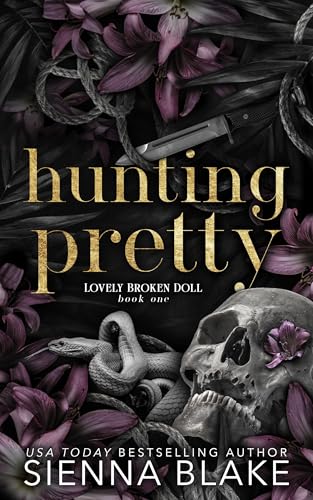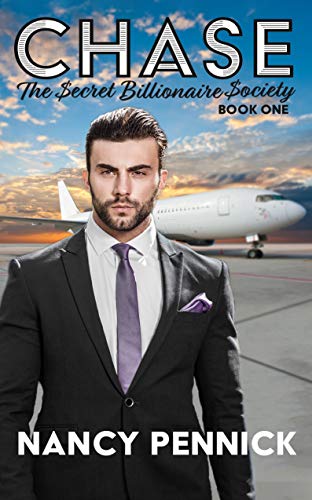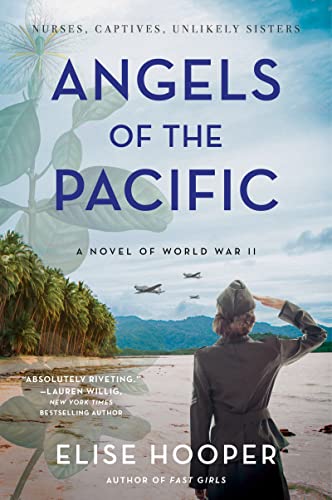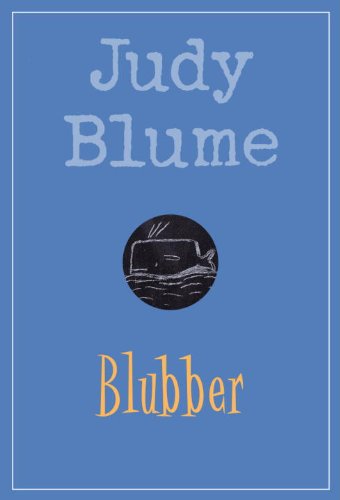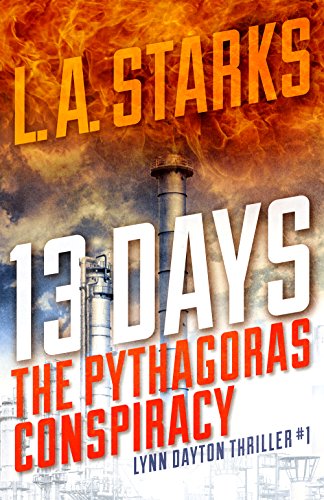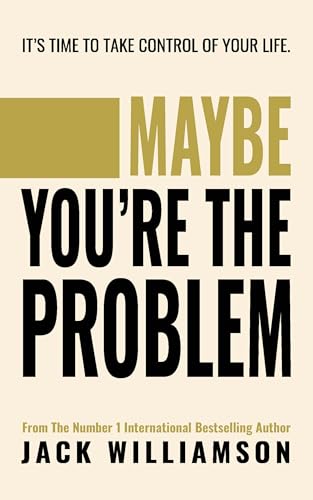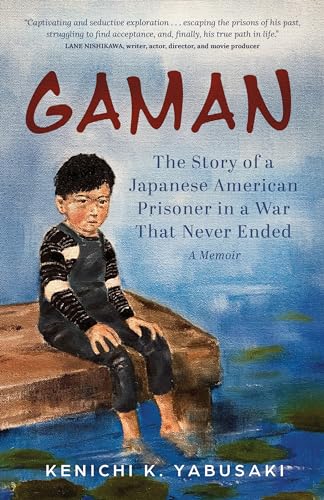4.6 stars – 45 reviews!
Engaging characters.
A musical journey.
A scene-stealing dog.
And, of course, a wonderful love story.
Put them all together…
and you’ll see why readers are falling in love with bestselling and award-winning
romance author Inglath Cooper’s
NASHVILLE series.
Nashville – Ready to Reach (Part One – New Adult Romance)
by Inglath Cooper
Nineteen-year old CeCe Mackenzie leaves Virginia for Nashville with not much more to her name than a guitar, a Walker Hound named Hank Junior and an old car she’d inherited from her grandma called Gertrude. But Gertrude ends up on the side of I-40 in flames, and Nashville has never seemed farther away.
Help arrives in the form of two Georgia football players headed for the Nashville dream as well. When Holden Ashford and Thomas Franklin stop to offer CeCe and Hank Junior a ride, fate may just give a nod to serendipity and meant to be.
5-star praise for NASHVILLE:
into romance…
“…I read the book from cover to cover in one sitting–it was that captivating…”
Tissue alert
“The tears are still flowing down my cheeks. Looking forward to laughing and crying my way through Nashville – Part Two.”
an excerpt from
Nashville
Part 1 – Ready to Reach
by Inglath Cooper
CHAPTER ONE
CeCe
I’ve been praying since before I can ever actually remember learning how. Mama says I took to praying like baby ducks to their first dip in a pond, my “please” and “thank you” delivered in a voice so sweet that she didn’t see how God would ever be able to say no to me.
Mama says my praying voice is my singing voice, and that any-body listening would know right off that the Father himself gave that voice to me. Two human beings, especially not her and one so flawed as the man who was supposedly my Daddy, would ever be able to create anything that reminiscent of Heaven.
I’m praying now. Hard as I ever have. “Dear Lord, please let this old rattletrap, I mean, faithful car Gertrude, last another hundred miles. Please don’t let her break down before I get there. Please, dear Lord. Please.”
A now familiar melody strings the plea together. I’ve been offering up the prayer for the past several hours at fifteen-minute intervals, and I’m hoping God’s not tired of my interruptions. I’ve got no doubt He has way more important things on His plate today. I wonder now if I was a fool not to take the bus and leave the car behind altogether. It had been a sentimental decision, based on Granny’s hope that her beloved Gertrude would help get me where I wanted to go in this life.
And leaving it behind would have been like leaving behind Hank Junior. I reach across the wide bench seat and rub his velvety-soft Walker Hound ear. Even above the rattle-wheeze-cough of the old car’s engine, Hank Junior snores the baritone snore of his deepest sleep. He’s wound up in a tight ball, his long legs tucked under him, his head curled back onto his shoulder. He reminds me of a duck in this position, and I can’t for the life of me understand how it could be comfortable. I guess it must be, though, since with the exception of pee and water breaks, it’s been his posture of choice since we left Virginia this morning.
Outside of Knoxville, I-40 begins to dip and rise, until the stretch of road is one long climb after the other. I cut into the right hand lane, tractor-trailer trucks and an annoyed BMW whipping by me. Gertrude sounds like she may be gasping her last breath, and I actually feel sorry for her. The most Granny ever asked of her was a Saturday trip to Winn-Dixie and the post office and church on Sundays. I guess that was why she’d lasted so long.
Granny bought Gertrude, brand-spanking new, right off the lot, in 1960. She named her after an aunt of hers who lived to be a hundred and five. Granny thought there was no reason to expect anything less from her car if she changed the oil regularly and parked her in the woodshed next to her house to keep the elements from taking their toll on the blue-green exterior. It turned out Granny was right. It wasn’t until she died last year and left Gertrude to me that the car started showing her age.
What with me driving all over the state of Virginia in the past year, one dive gig to another, weekend after weekend, I guess I’ve pretty much erased any benefits of Granny’s pampering.
We top the steep grade at thirty-five. I let loose a sigh of relief along with a heartfelt prayer of thanks. The speedometer hits fifty-five, then sixty and seventy as we cruise down the long stretch of respite, and I see the highway open out nearly flat for as far ahead as I can see. Hank Junior is awake now, sitting up with his nose stuck out the lowered window on his side. He’s pulling in the smells, dissecting them one by one, his eyes narrowed against the wind, his long black ears flapping behind him.
We’re almost to Cookeville, and I’m feeling optimistic now about the last eighty miles or so into Nashville. I stick my arm out the window and let it fly with the same abandon as Hank Junior’s ears, humming a melody I’ve been working on the past couple days.
A sudden roar in the front of the car is followed by an awful grinding sound. Gertrude jerks once, and then goes completely limp and silent. Hank Junior pulls his head in and looks at me with nearly comical canine alarm.
“Crap!” I yell. I hit the brake and wrestle the huge steering wheel to the side of the highway. My heart pounds like a bass drum, and I’m shaking when we finally roll to a stop. A burning smell hits my nose. I see black smoke start to seep from the cracks at the edge of the hood. It takes me a second or two to realize that Gertrude is on fire.
I grab Hank Junior’s leash, snapping it on his collar before reaching over to shove open his door and scoot us both out. The flames are licking higher now, the smoke pitch black. “My guitar!” I scream. “Oh, no, my guitar!”
I grab the back door handle and yank hard. It’s locked. Tugging Hank Junior behind me, I run around and try the other door. It opens, and I reach in for my guitar case and the notebook of lyrics sitting on top of it. Holding onto them both, I towboat Hank Junior around the car, intent on finding a place to hook his leash so I can get my suitcase out of the trunk.
Just then I hear another sputtering noise, like the sound of fuel igniting. I don’t stop to think. I run as fast as I can away from the car, Hank Junior glued to my side, my guitar case and notebook clutched in my other hand.
I hear the car explode even as I’m still running flat out. I feel the heat on the backs of my arms. Hank Junior yelps, and we run faster. I trip and roll on the rough surface pavement, my guitar case skittering ahead of me, Hank Junior’s leash getting tangled between my legs.
I lie there for a moment, staring up at the blue Tennessee sky, trying to decide if I’m okay. In the next instant, I realize the flouncy cotton skirt Mama made me as a going away present is strangling my waist, and Hank Junior’s head is splayed across my belly, his leash wrapped tight around my left leg.
Brakes screech and tires squall near what sounds inches from my head. I rock forward, trying to get up, but Hank yips at the pinch of his collar.
“Are you all right?”
The voice is male and deep, Southern like mine with a little more drawl. I can’t see his face, locked up with Hank Junior as I am. Footsteps, running, and then a pair of enormous cowboy boots comes into my vision.
“Shit-fire, girl! Is that your car?”
“Was my car,” I say to the voice.
“Okay, then.” He’s standing over me now, a mountain of a guy wearing jeans, a t-shirt that blares Hit Me – I Can Take It and a Georgia Bulldogs cap. “Here, let me help you,” he says.
He hunkers down beside me and starts to untangle Hank Junior’s leash. Hank would usually do me the service of a bark if a stranger approached me, but not this time. He wags his tail in gratitude as the big guy unhooks the snap from his collar, tugs it free from under my leg and then re-hooks it.
Realizing my skirt is still snagged around my waist, my pink bikini underwear in full view, I sit up and yank it down, nothing remotely resembling dignity in my urgency.
“What’s going on, man?”
I glance over my shoulder and see another guy walking toward us, this one not nearly so big, but sounding grouchy and looking sleep-deprived. He’s also wearing cowboy boots and a Georgia Bulldogs cap, the bill pulled low over dark sunglasses. His brown hair is on the long side, curling out from under the hat.
He glances at the burning car, as if he’s just now getting around to noticing it and utters, “Whoa.”
Mountain Guy has me by the arm now and hauls me to my feet. “You okay?”
I swipe a hand across my skirt, dust poofing out. “I think so. Yes. Thank you.”
Hank Junior looks at the second guy and mutters a low growl. I’ve never once doubted his judgment so I back up a step.
“Aw, he’s all right,” Mountain Guy says to Hank Junior, patting him on the head. “He always wakes up looking mean like that.”
Grouchy Guy throws him a look. “What are we doing?”
“What does it look like we’re doing?” Mountain Guy says. “Helping a damsel in distress.”
“I’m not a damsel,” I say, my feathers ruffling even as I realize I could hardly be in much more distress than I am currently in.
Gertrude is now fully engulfed in flames, from her pointed front end to her rounded trunk. Cars are keeping to the far left lane. Surprisingly, no one else has bothered to stop, although I can see people grabbing their cell phones as they pass, a couple to take pictures, others more likely dialing 911.
“So what exactly happened?” Mountain Guy asks me.
“I just heard this loud noise and then smoke started coming out of the hood.”
“Good thing you got her pulled over fast,” he says.
“I didn’t know they let vehicles that old on the road,” Grouchy Guy says.
“She belonged to my Granny,” I fire back in instant outrage, as if everything that has just happened is all his fault.
Grouchy Guy starts to say something, presses his lips together, maybe thinking better of it.
“Don’t pay him no mind,” Mountain Guy advises. “You live near here?”
I laugh then, the sound popping up out of me under the sudden realization that with the exception of my dog, my guitar and my lyrics notebook, I now have no other earthly possessions to call my own. Even my purse has been incinerated inside Gertrude’s melted interior.
The shrill whine of a fire engine echoes from down the Interstate, and a couple of seconds later it comes roaring into sight, lights flashing. It rolls to a heavy stop just behind Gertrude, brakes squealing. Men dressed in heavy tan uniforms grab hoses and run at the burning car.
The water gushes out with impressive force. The blazing fire is a joke against the onslaught, and in less than a minute, the flames slink into nothingness. The only thing left is the charred framework of Gertrude’s once sleek exterior.
As soon as the water hoses cut off, I start to cry, as if some sort of transference has turned on the flow inside of me. I cry because I’ve ruined Granny’s car, her most prized possession. I cry because I now have no money, no means of getting any closer to my dream than my own two feet will carry me. And I cry because everybody back home was exactly right. I was born with dreams way too big for somebody like me to ever make come true.
“Hey, now.” Mountain Guy pats me on the shoulder the same way he had patted Hank Junior on the head a few minutes before. “Everything’s gonna be all right.”
One of the firemen walks up to us. “This y’all’s car?”
Grouchy Guy points at me. “It was hers.”
“Sorry for your loss, ma’am,” the fireman says. “Guess you’ll be needing to call a tow truck.”
Even Mountain Guy can’t help laughing at this, and maybe if you were removed from the situation, it would be pretty funny. Me? I’m anything but removed, and I’m suddenly thankful for Mama’s faithful Triple A membership and the insurance she’s paid up for me through the end of the year.
“You can tell them the car is just short of Mile Marker 320.”
“Thank you,” I say. “And thank you for putting out the–”
“No problem, ma’am,” he says quickly, as if realizing I can’t bring myself to finish.
I glance at Mountain Guy. “Do you have a cell I could borrow?”
“Sure thing.” He pulls an iPhone from his shirt pocket and hands it to me.
“You mind if I get the number for Triple A?”
“’Course not.”
Hank Junior’s leash wrapped around my wrist, I walk a few steps away and tap 411. A bored-sounding operator gives me the 800 number and then connects me free of charge. The woman who takes my “case” doesn’t sound the least bit surprised that my car has burned to smithereens or that I need a tow truck to come and get us both. I wonder if she gets calls like this every day.
In between her questions, I can hear Mountain Guy and Grouchy Guy in a low rumble of discussion that sounds like it has disagreement at its edges. I know they’re talking about me, and while I want to swing around and scream at them both that I don’t need their help, I know the last thing I can afford to do is look a gift horse in the mouth.
The lady from Triple A tells me that Ray’s Towing from Cookeville will be coming out to get the car. She asks if I will also need a ride. I tell her both my dog and I will.
I return the phone to Mountain Guy.
“Get it all squared away?” he asks.
“I think so,” I say, not even sure in this context what that could possibly mean.
“How long before they get here?”
“Hour.”
“Well, you can’t wait by yourself. It’ll be dark by then,” Mountain Guy says.
“I’ll be fine,” I say. “But thanks for stopping. And for letting me use your phone.”
“Not a problem,” he says, glancing over at Grouchy Guy who is still wearing his sunglasses and has his arms folded across his chest in a stance of non-compliance.
I pick up my guitar case and give Hank Junior a little tug before backing away from them. “Thanks again,” I say and head for my charred car.
I’m halfway there when Mountain Guy calls out, “You going to Nashville?”
“What gave it away?” Grouchy Guy throws out, his voice heavy with sarcasm.
I pin him with a look, then turn my gaze to his friend. “Yeah. I am.”
“Well, so are we,” Mountain Guy says. “No point in you staying here when we’re going to the same place, now is there?”
Relief, unwelcome though it is, floods through me. I am feeling kind of sick at the thought of waiting with the car while dark sets in. Maybe I’ve watched too many episodes of Disappeared. My imagination has already started heading off in directions I’d just as soon it didn’t.
But then, on the other hand, I don’t know squat about the two I’m getting ready to ride off with. They could be serial murderers thinking it was their lucky day that my car caught on fire, and they happened by.
Hank Junior seems to think they’re all right though. He’s no longer low-growling at Grouchy Guy. And besides, what choice do I really have? I have no money, no credit card, no clothes.
Panic starts to clutch at me, and all of a sudden, I hear my Granny’s voice telling me, as she had so many times when I was growing up, that we take this life one moment, one day at a time. I’m not going to look any farther ahead than that because if I do, I think I might just dissolve into a puddle of failure right here on the side of I-40.
“Let’s get this show on the road,” Mountain Guy says, taking my guitar case from me and placing it in the bed of the pickup.
Grouchy Guy looks at me. “He riding in the back?”
“You mean Hank Junior?” I ask.
“That his name?”
“It is.”
“Yeah, Hank Junior.”
“Not unless I am,” I answer.
Grouchy Guy looks at Mountain Guy. “That’s fine with me.”
Mountain Guy laughs. “Man, you got up on the wrong side of the truck.” Then to me, “He ain’t always this nasty. Y’all hop on in.”
Without looking at Grouchy Guy, I scoot Hank Junior up onto the floorboard, and climb in behind him, sliding to the middle. He hops onto my lap and curls up in a ball, as if he knows he needs to be as inconspicuous as possible.
It’s a full truck with the four of us. My shoulders are pressed up against both guys, and I try to make myself smaller by hunching over.
Mountain Guy throws the truck in gear, checks the side mirror and guns onto the highway. “Reckon we oughta know your name,” he says.
“CeCe,” I answer. “CeCe MacKenzie.”
“CeCe MacKenzie,” he sings back with a country twang. “Got a nice little rhyme to it.”
“What’s yours?” I ask, aware that I will now have to quit calling him Mountain Guy.
“Thomas Franklin.”
“You don’t look like a Thomas,” I say.
“I get that a lot.”
“I’m sorry,” I start to apologize.
“Hey, no problem. My folks wanted the world to take me seriously, so they never gave in on the Tom, Tommy thing.”
“Oh. Makes sense.”
“Attitude over there is Holden Ashford.”
“Hey,” Holden says without looking at me. He’s still wearing the dark glasses, and I wonder if his eyes are as unfriendly as his voice.
“Hey,” I reply, matching my tone to his.
“Where you from, CeCe?” Thomas asks, shooting a glance my way.
“Virginia.”
“Georgia,” he says, waving a hand at himself and then Holden.
“Let me guess,” Holden says. “You wanna be a singer?”
“I am a singer,” I shoot back.
I can’t be sure because of the glasses, but I’d swear he rolled his eyes. “What about the two of you? You headed to Nashville to be plumbers or something?”
Thomas laughs a deep laugh that fills up the truck. “Heck, no. I sing. He writes and plays guitar.”
“That’s why he takes himself so seriously.” The words are out before I can think to stop them.
“Matter of fact, it is,” Thomas says, another laugh rolling from his big chest.
“Up yours,” Holden says without looking at either of us. I’m not sure if he’s talking to Thomas or to me.
“What do you sing, CeCe?” Thomas asks.
“Country. What else is there?”
“Heck, yeah!” Thomas slaps the steering wheel. “Although with a dog named Hank Junior I reckon I could’ve assumed that.”
At the sound of his name, Hank Junior raises his head, blinks at Thomas and then continues his snooze.
“What about you?” I ask. “Who’re your favorites?”
“Chesney, Twitty, Haggard, Flatts. If it’s got country on it, I sing it. Holden there says I have a sound of my own. I figure it’s just what’s managed to stick together from all my years of tryin’ to sound as good as the greats.”
The sun has dropped on the horizon, fading fast. The sky has a pinkish glow to it, and cars have started to flip on their headlights. A sign on the right says Cookeville – 5 miles.
Holden pulls a phone out of his pocket, taps the screen and says, “Starbucks off exit 288. I could use a coffee.”
“I’ll second that,” Thomas agrees, and then looking at me, “We’ve got a gig tonight. Nine o’clock at the Bluebird.”
“Seriously?” I say, not even bothering to hide my astonishment. I’ve been reading about the Bluebird for years and the country music stars who played there before they made it big, Garth Brooks and Taylor Swift among them.
“Yeah,” Thomas says. “You oughta come. I mean unless you got other plans.”
Not unless you count finding a place to stay on credit. “I’d like that.”
“Cool.”
Holden makes a sound that clearly conveys his disapproval.
Irked, I say, “You ever take off those glasses? It’s getting dark outside.”
He looks directly at me then, without removing them. “They bothering you?”
“Honestly, yes. I like to judge a person by what I see in their eyes.”
“Some reason you need to be judging me?”
“I don’t know. Is there?”
He lowers the glasses and gives me a long cool look. His eyes are blue, ridiculously blue, and his lashes are thick. I lean away from him like I’ve been struck by a jolt of electricity.
“He’s just lovesick,” Thomas says. “He’s harmless. Well, mostly. Depending on who you ask.”
“Shut up,” Holden says.
Thomas chuckles. “Oh, the tangled webs we weave in our wake.”
“Good thing you’re not the writer,” Holden mutters.
“I had a little alliteration thing going on there,” Thomas sings back.
I have to admit his voice is wonderful. Smooth and rolling like I imagine a really nice wine might taste.
“That’s about all you had going,” Holden says.
We’re off the interstate now, turning left at a stoplight before swinging into the Starbucks on our right. Thomas pulls the truck into a parking spot. “Potty break, anyone?”
“Okay if Hank Junior waits here?” I ask.
“Sure, it is,” Thomas says and then to Hank Junior, “you ever tried their mini donuts? No? How about I bring you one? Plain? Plain, it is.”
I watch this exchange with a stupid grin on my face and wonder if Thomas has any idea that the only thing anyone could ever do to make me like them instantly was be nice to my dog.
“I’ll be right back, Hanky,” I say, kissing the top of his head and sliding out of the truck on Thomas’s side. I don’t even dare look at Holden to get a read on his opinion of his friend’s generos-ity. I’m pretty sure I know what it would be. And that’s just gonna make me like him less.
Starbucks is crowded, tables and leather chairs occupied by every age range of person, their single common denominator the laptops propped up in front of them. The wonderful rich smell of coffee hits me in the nose, triggering a reminder that I haven’t eaten anything since my last PBJ at eleven-thirty this morning. Right behind that comes the awareness that I have no money.
I head for the ladies’ room, glad to find it empty. For once, the men’s room has a line, and I don’t relish the idea of standing in the hallway across from Grouchy Guy, exchanging glares.
A look in the bathroom mirror makes me wonder why those two bothered to give me a ride. My hair is a frizzy mess. What were wavy layers this morning have now conceded to chaotic turn screw curls that only need a BOIIING sound effect for maximum laugh value.
I pull an elastic band out of my skirt pocket and manage to tame the disaster into a ponytail. I splash water on my face, slurp some into my mouth and use my finger to pseudo brush my teeth. Looking up, I realize none of it has helped much but will just have to do for now.
I head to the front where Thomas and Holden are ordering. Line or not, they’re fast.
“What do you want?” Thomas throws out. “I’ll order yours.”
“Oh, I’m good,” I say, crossing my arms across my chest. “I’ll just go let Hank Junior out.”
Thomas points his remote at the parking lot and pushes a button. “That should unlock it. Sure you don’t want anything?”
“I’m sure.”
Outside, I open the truck door and hook up Hank Junior’s leash. He bounds off the seat onto the asphalt, already looking for the nearest bush. I let him lead the way, across a grassy area to the spot of his choice. My stomach rumbles, and I tell myself this will be a good time to lose those five pounds I’ve been meaning to work on.
Hank Junior has just watered his third bush when I hear a shout, followed by the rev of an engine roaring off. Thomas and Holden are sprinting from Starbucks. At the truck door, Thomas looks around, spots me and waves frantically. “Come on!” he yells. “They just stole Holden’s guitar!”
“They” are two guys on a motorcycle, now peeling out of the parking lot and hauling butt down the road. The guy on back has the guitar case wedged between them.
Hank Junior jumps in. I scramble up behind him. Thomas and Holden slam the doors, and Thomas burns rubber through the parking lot.
“You left the door standing wide open?” Holden shouts at me. He’s not wearing his glasses now, and I have to say I wish I’d never asked him to take them off. His eyes are blazing with fury, and it’s all directed at me.
“I was just a few yards away,” I say. “I didn’t think–”
“Something you’re clearly not used to doing,” he accuses between clenched teeth.
“Hey, now!” Thomas intervenes. “Y’all shut up! I’m planning on catching the sons of bitches.”
And he’s not kidding. Thomas drives like he was raised on Nascar, gunning around and in front of car after car.
“What’s in the case?” I ask. “Diamonds?”
“Might as well be to Holden,” Thomas says. “His lyric notebook.”
My stomach drops another floor if that’s possible. “Your only copy?”
“For all intents and purposes,” he says.
By now, I’m feeling downright sick. I can feel Hank Junior’s worry in the rigid way he’s holding himself on my lap. I rub his head and say a prayer that we’ll live to laugh about this. Every nerve in my body is screaming for Thomas to slow down, but a glance at Holden’s face is all I need to keep my mouth shut.
“There they are!” I yell, spotting them up ahead just before they zip in front of a tractor-trailer loaded with logs.
“Crazy mothers,” Thomas shouts, whipping around a Volvo whose driver gives us the finger.
I never liked thrill rides. I was always the one on church youth group trips to sit out the roller coaster or any other such thing designed to bring screams ripping up from a person’s insides. I’m feeling like I might be sick at any moment, but I press my lips together and stay quiet.
“They just took a right,” Holden barks. He unbuckles his seat belt and sticks his head out the window, yelling into the wind. I can’t understand what he’s saying, although I’m pretty sure it involves profanity.
“Why don’t we just pull over and call 911?” I suggest.
Thomas ducks his head to see around a produce truck loaded with bushel baskets of tomatoes and cabbage. “They won’t catch them before we do.”
I have to admit we’re gaining on them. I can now see the way the guy holding the guitar case keeps throwing looks of panic over his shoulder. He’s making scooting motions, too, like he can force the motorcycle to go faster in doing so.
I drop my head against the seat and close my eyes, forcing myself not to look for a few seconds. That only makes the lack of control worse, so I bolt upright and hold onto Hank Junior tight as I can.
We’re two car lengths behind them now, and the motorcycle driver has taken his craziness to another level. He zips past a mini-van, laying the bike so low that the end of the guitar case looks like it might touch the pavement. I hear and feel Holden yank in a breath.
Thomas cuts around the van and lays on the horn. We’re right on the motorcycle’s tail now and, in the headlights, I see that both the driver and his buddy are terrified. The front of the truck is all but touching the license plate of the motorcycle, and I don’t dare think what would happen if they slammed on their brakes.
“Slow down!” I scream, unable to stand another second. At that same moment, the guy holding the guitar case sends it flying out to the right of the bike.
It skitters on the asphalt, slips under the rail and disappears from sight.
“Stop!” Holden yells.
Thomas hits the brakes, swings onto the shoulder and then slams the truck into reverse. Suddenly, we’re backing up so fast my head is spinning.
“Right here!” Holden shouts and before Thomas has even fully stopped the truck, he’s jumping out the door and running.
“There’s a flashlight in the glove compartment,” Thomas says, leaning over me.
I’m too stunned to move, and so I sit perfectly still, willing my reeling head to accept that we’ve stopped. Hank Junior barks his approval, and I rub his back in agreement.
Thomas hauls out, flicking on the flashlight and calling for Holden. Within seconds, he’s disappeared from sight, too. I tell myself I need to get out and help look, but a full minute passes before I can force my knees to stop knocking long enough to slide off the truck seat. I hold onto Hank Junior’s leash as if my life depends on it and teeter over to the spot where I’d seen them hop over the guardrail.
The drop off is steep, and vines cover the ground. I can’t see much except in the swipes when cars pass and lend me their headlights. I catch a glimpse of the light way down the hill. I hear Thomas’s voice followed by Holden’s.
“Are y’all okay?” I call out.
“We got it!” Thomas yells.
I’m so relieved I literally wilt onto the rail, and send up a prayer of thanks. Hank Junior and I wait while they climb up. Holden appears first, looking as battered as his case. Thomas is right behind him. As soon as they reach the top, they both drop down on the ground, breathing heavily.
“Man,” Thomas says. “What I wouldn’t give for the chance to beat their tails!”
They gulp air for several seconds before Holden fumbles with the latches on the case and pops it open. Thomas points his flashlight at the interior, and my heart drops.
“Well, that’s not good,” Thomas says, his big Georgia voice dropping the words like boulders.
Holden picks up the guitar. It hangs limp and useless, broken in three places. He holds it the way a little boy would hold a baseball glove that got chewed up by the lawn mower. His expression is all but grief-stricken.
“I’m sorry,” I say. “I’m so sorry.”
“It wasn’t your fault,” Thomas consoles.
“Then whose fault is it?” Holden snaps, his blue gaze lasering me with accusation.
“Those two butt-wipes who stole it,” Thomas says tightly.
“None of this would have happened if you hadn’t insisted on stopping to help her!”
“Man, what’s wrong with you? Her car was on fire. Chivalry ain’t that dead.”
Holden hesitates, clearly wrestling with a different opinion. “We didn’t have to give her a ride to Nashville.”
“No, we didn’t,” Thomas agrees. “But that ain’t who we are.”
I stand and dust off my skirt. I walk to the truck, Hank Junior trailing behind me. I climb up on the back tire, reach for my guitar and return to where the two of them are still sitting. I pull out my own lyric notebook and the flash drive that contains the only two song demos I’ve been able to afford to have made. I stick that in my pocket, close the acase and hand it to Holden.
“You take mine,” I say. “I know it won’t replace yours, but maybe it’ll work temporarily. Y’all have been real nice to me. I’m not gonna ask any more of you. Thanks a lot for everything.”
And with that, Hank Junior and I start walking.
♪
CHAPTER TWO
Holden
I don’t want to stop her.
I mean, what the hell? You don’t need to be a friggin’ genius to see the girl’s nothing but trouble.
“You just gonna let her walk off into the night?” Thomas asks, looking at me like I just destroyed every illusion he ever had about me.
“If she wants to go, who are we to stop her?”
“You know dang well she thinks, knows, you don’t want her riding with us.”
“Do we really need another card stacked against us? She’s a walking disaster!”
Thomas throws a glance up the highway. “Yeah, right now she is.”
“See. You’re already trying to figure out how to fix things for her. Every time you find somebody that needs fixing, we come out on the losing end of the deal.”
“If you’re talkin’ about Sarah, that’s your doin’, man. All I ever agreed to do with her was sing. You’re the one who got involved with her. Nobody made you do that but you.”
I’d like to tell him to piss off, as a matter of fact. Except that he’s right.
I get to my feet, slap the dirt from my jeans and yank up both cases, one containing my broken Martin, the other holding the piece of crap CeCe MacKenzie probably bought at Wal-Mart.
“You keeping the guitar?” Thomas calls from behind me.
“I’ll toss it out the window when we pass her,” I say.
“Oh, that’s mature.”
I put both the guitars in the back, giving lie to what I just said. I climb in the truck and slam the door. Thomas floors it, merging into the oncoming traffic.
Thomas hunches over the steering wheel, looking for her. I’m starting to wonder if, hope, she’s hitched another ride when I spot her up ahead, her skirt flouncing left to right as she walks, that ridiculous floppy-eared hound trotting along beside her.
“Well?” Thomas throws out.
“Pull the hell over,” I say.
He looks at me and grins but knows better than to say anything. Wheeling the truck to a stop in front of her, Thomas gets out and walks around back. I force myself not to look in the side mirror. I crank the radio, lean against the seat and close my eyes.
A couple of minutes pass before the two of them walk to the driver’s side and climb in.
Hank Junior licks my face and I jerk forward, glaring at him. “You have to write her an invitation?” I ask. “We’re supposed to be in Nashville in an hour and a half.”
“Ain’t no problem,” Thomas says. “We’ll be there with warm-up time to spare.”
Thomas grabs his Starbucks bag from the dash where he’d flung it earlier. He pulls out a plain mini-donut and offers it to Hank Junior. “Believe I promised you that.”
The dog takes it as if he’s royalty sitting down to tea. He chews it delicately and licks his lips. “Good, ain’t it?” Thomas says, pleased. “Got you one, too, CeCe.”
“That’s okay,” she says.
“Go on, now. Hank Junior and I can’t eat alone.”
She takes the donut from him and bites into it with a sigh of pure pleasure. “Um, that’s good. Thank you.”
“You’re welcome.”
CeCe sits straight as an arrow, Hank Junior curled on top of her again. She’s yet to look at me, and I can imagine her pride has taken a few more pokes in agreeing to get back in here with us.
“I’m real sorry about your guitar,” she says in a low voice. “I mean it about you taking mine. My uncle used to play with a group called The Rounders. He gave it to me before he died.”
“The Rounders?” I say, recognizing the name. “They wrote ‘Wish It Was True’ and ‘Long Time Comin’?”
“Yeah, those were their biggest songs,” she says, still not looking at me.
“That’s some good music,” Thomas says. “I’ve had both those tunes in my sets.”
“Me, too,” CeCe says.
I stay quiet for a moment. “Which one was your uncle?”
“Dobie. Dobie Crawford.”
“Good writer,” I say, not sure why it’s so hard for me to release the compliment since I really do mean it. “I didn’t realize he’d died.”
“Two years ago,” she says.
“What happened to him?” Thomas asks.
“Liver failure.”
“That’s a shame,” he says.
“Yeah,” I add. “It is. I’m sorry.”
“Thanks,” she says, looking at me now with surprise in her voice. “He was a good man. Aside from the drinking, I mean.”
“He teach you how to play?” Thomas asks.
“He did,” she says. “I was five when he started giving me lessons.”
“You any good?” I ask, unable to stop myself.
She shrugs. “He thought I was.”
We’re looking at each other now, and all of a sudden it’s like I’m seeing her for the first time. I realize how unfair I’ve been to her, that I deliberately set out not to see her as anything more than a noose around our necks.
“What do you think?”
“I think I’m pretty good. Not nearly as good as he was.”
“Not many people have a teacher with that kind of talent.”
“I was lucky,” she says. “Who taught you?”
“I mostly taught myself,” I say.
“Don’t let him fool you,” Thomas says. “He’s got the gift. Plays like God Himself is directing his fingers.”
“Wow.” She looks at me full on, as if she’s letting herself take me in for the first time, too, without the conclusions she’s already made about me getting in the way. I’m uncomfortable under her gaze, and I don’t know that I can say why. An hour ago, I didn’t care what she thought of me.
“Thomas just likes the fact that he doesn’t have to pay me to play for him,” I say, throwing off the compliment.
“That’s a plus for sure,” Thomas says, and then to CeCe, “but I still ain’t overselling him.”
“I’d like to hear you play,” she says, glancing at me again.
“Good,” Thomas says. “’Cause he’s gonna have to take you up on that guitar of yours. We’re onstage in less than an hour.”
“Okay then if I come watch?” she asks in a cautious voice.
“Sure, it is,” Thomas says.
CeCe looks at me, expecting me to disagree, I would guess. But I don’t. “I don’t want your guitar. To keep, I mean. I’ll borrow it just for tonight.”
“You can keep it,” she says. “I owe you.”
“I don’t want your guitar.”
“Okay.”
♪
WE DRIVE THE REST of the way into Nashville without saying too much of anything. Thomas has gone quiet in the way he always does before a show, playing through lyrics in his head, gathering up whatever emotional steam he needs to get up in front of an audience and sing.
We’ve been together long enough that we respect each other’s process, and when it comes time to leave each other alone, we do.
I air guitar some chord patterns, walk through a new tune we’re doing at the end of the set tonight, wonder if I could improve the chorus lyric.
CeCe’s head drops against my shoulder, and it’s only then I realize she’s asleep. Hank Junior has been snoring the past ten miles. I look down at CeCe and will myself not to move. I don’t know if it’s because she’s clearly dead tired or because her hair is so soft on my arm. I can smell the shampoo she must have used that morning. It smells clean and fresh, like springtime and honeysuckle.
I feel Thomas look at me, but I refuse to look at him. I know what he’s thinking. That’s when I move closer to the door, and CeCe comes awake with a start.
“Oh,” she says, groggy, “I’m sorry. I didn’t realize I dozed off.”
“It’s okay,” I say, wondering if I could be more of an ass.
CeCe sits upright as a poker the rest of the way into the city. Hank Junior goes on snoring, and she rubs his ears, first one, then the other.
Thomas drives straight to the Bluebird. We’ve been coming down every few weeks for the past year or so, working odd jobs back home, saving money, gathering proof each time we come that we need to give this a real shot. This time, we’re staying.
The strip mall that includes the Bluebird Café among its tenants isn’t much to look at from the outside.
The lot is full so we squeeze into a grassy area not too far from the main entrance. The place is small, the sign out front nothing that will knock your socks off.
“It’s not exactly what I imagined.” CeCe studies the front door. “I thought it would be bigger.”
“We thought the same thing first time here,” Thomas agrees.
The truth is we’d felt downright disappointed. Both of us had heard about the place for years, how many dreams had come to fruition behind those doors. The physical appearance had been something of a letdown. It’s not until you’re inside and witness what goes on there that you get the fact that the appearance doesn’t much matter.
“Hank Junior can wait here,” Thomas says. “That okay?”
“Yeah,” CeCe says. “Let me take him potty first.”
Hank Junior follows her out of the truck as if that’s exactly what he had on his to do list. They head for a grassy spot several yards away where Hank Junior makes use of a light pole.
Thomas reaches for CeCe’s guitar case. “Maybe you oughta tune her up.”
“Yeah,” I say, taking the case and setting it at my feet. I feel weird about it even though I know CeCe wants me to use it. I pull out the guitar, pleasantly surprised by the heft of it. It’s a Martin, like mine, and this too, catches me off guard. I guess I should have known if it belonged to Dobie Crawford, it was gonna be more than decent.
I sit on the curb, strum a few chords, and find there’s not much to improve on. CeCe knows how to tune a guitar.
She’s back then, Hank Junior panting like he’s thirsty. “Either of you have a bottle of water you could share with Hank?”
I stand up, reach under the truck seat and pull out one I’d opened earlier.
“Thanks,” she says, without looking me in the eye. She takes the cap off, squats in front of the dog and cups her hand, letting him drink from it. She refills her palm until he loses interest, and then she helps him up in the truck.
Thomas hits the remote. “Let’s get on in there.”
“Ah, would it be all right if I borrow some money for the cover charge? I. . .my wallet was in the car.”
“You have no money?” I ask before I think to soften or censor the question.
She shakes her head, glancing down at her sandals. She looks up then, pride flashing in her eyes. “I’ll pay you back.”
“No need to be worrying about that,” Thomas intervenes. “We’ll spot you what you need. You don’t have to pay here anyway. You’re with the band.”
I attempt to level Thomas with a look, but our friendship is way past the point of him giving in to me on anything he doesn’t want to. “You’re using her guitar, aren’t you?” he tosses at me in case I need an explanation.
I start to argue that I wouldn’t need her guitar if she hadn’t left the truck door open. That seems pointless right now, so I march on ahead of them without bothering to reply.
There’s a crowd, college kids, couples, older folks, pretty much the gamut. I step around the line, murmuring, “Excuse me, sorry.” I duck through the door, trying not to bump anyone with the guitar case, Thomas and CeCe behind me.
A dark-haired girl is working the front door. She’s wearing a short blue dress, scooped low, and cowboy boots that make her legs seem a mile long. She directs a high beam smile at me. “You in the round?”
“We are,” I say, waving a hand at Thomas and CeCe.
“What about her?” She looks at CeCe and forces a smile the way girls do when they sense competition.
“She’s with us,” Thomas says.
“Are you playing?” the girl asks, meeting CeCe’s gaze with a note of authority.
“I, no–” CeCe begins.
“Then you’ll need to pay the cover charge,” she says.
Thomas starts to pull out his wallet when she adds, “And go to the back of the line. All these other people were here before you.”
CeCe’s eyes go wide, and suddenly bright like she’s going to bust out crying at any second. I guess it has been that kind of day for her.
I lean in on the stand, close to the girl’s face and say, “Can you cut her a break just for tonight? I’m using her guitar because mine got stolen by two guys on a motorcycle.”
“Hey!” Someone yells from the end of the line. “We standin’ here all night or getting inside to hear some music?”
“All right, all right,” the girl says, not taking her eyes off mine while she writes something on a card and hands it to me. “I’m Ashley. Call me later. I’d like to hear the rest of your story.”
I slip it in my shirt pocket and start making my way through the tables to the center of the floor where other writers and singers are already set up.
“So that’s why you bring him along,” I hear CeCe say to Thomas.
“Gotta admit he comes in handy,” Thomas shoots back with a laugh.
Thomas and I take the two chairs remaining in the circle. We’ve met everyone else in the round on other trips to Nashville. Darryl Taylor to my left who I just heard is on the cusp of a record deal. He writes his own stuff, and he’s good. Really good. Shauna Owens sits next to Thomas. She’s been a semi-finalist on Idol, and I hear the only thing keeping her from the big leagues is her stage fright. Sometimes she keeps it under wraps, and sometimes she doesn’t.
Across from us is a fifteen-year old who’s been coming to town with her mom for the past two years, learning the ropes, writing at first with anyone she could find. Last time we were in town, writers were starting to seek her out, which means someone up the ladder is taking notice of her.
Within ten minutes, the place is totally packed. People are turned away at the door. I look around and spot CeCe leaning against a corner wall by the bar. She looks a little lost standing there by herself, and I feel a pang of compassion for her. I instantly blink it away, reminding myself that Thomas and I both will do well if we manage to navigate the waters of this town without either one of us drowning. We threw her a life raft today. That oughta be enough. I’m not about to take on swimming her to shore.
Mike Hanson is top dog in the round tonight. He’s got a publishing deal with one of the major houses in town and just recently got his first cut with a cool new band. Thomas and I met him when we started coming to town and playing at the Listening Room. He’d already been at it for a couple of years then, and starting to get some interest. I knew the first time I heard him that he had the talent to make it, but the way things work here, affirmation doesn’t come until you get a publishing deal. The next rung up is a cut.
Mike blows on the microphone, taps it once and makes it squawk. “Howdy, everybody. Welcome to the Bluebird Café. I’d like to thank y’all for coming out. I’m Mike Hanson. We got some fine music for you tonight.”
The crowd claps with enough enthusiasm that it’s clear they believe him. I’m hoping we live up to it.
Mike introduces each of us, calls me and Thomas a duo, singer-writer team, and I start to get a rush of nerves the way I always do just before we perform.
“Y’all don’t forget your waiters and waitresses tonight,” Mike reminds the crowd. People clap and whistle. Mike strums a few chords. “I hope y’all will be hearing this on the radio real soon.” He sets right in to the song then, and the applause grows louder. It’s clear word has gotten out about his recent success.
This is one thing I’ve come to love about Nashville. People here take pleasure in the accomplishment of others. Sure, everyone wants to make it, or they wouldn’t have come in the first place. It’s more than that though, a camaraderie of a sort I haven’t known anywhere else.
It’s almost like running some kind of marathon together, and instead of begrudging the fact that they’ve crossed the finish line before you, you’re somewhere behind them, throwing a fist in the air and cheering them on.
At least, the people who have been at it a while do. Don’t get me wrong. The competition is fierce. Thomas and I were no different from any other newbie to the scene. We drove into town almost a year ago, thinking we’d be on the radio in no time. We’d gotten enough validation from our fans back home on the University of Georgia scene that we’d started to accept their loyalty as all we needed to verify what would happen once Nashville discovered us.
What we hadn’t counted on was all the other talent riding into town on the same wave of determination and hope. And how damn good they would be.
Mike’s song is enough to make me green with envy if I let myself buy into that. The lyrics are raw with truth, but polished like a diamond that’s been buffed with a soft cloth. The music has an element of something different enough to make it sound fresh, make it stand out.
I don’t think I’m far enough along to know exactly what it is that sets it apart from what the rest of us will play tonight. I just know there is something, and more than anything in the world, I want my stuff to be that good. A year of coming here has shown me that it’s not, yet, and in some weird and kind of awful way, I guess you could call that growth.
When Mike repeats the last tag of his song, the crowd throws out a storm of applause. He’s shy, and makes a pretense of brushing something off the front of his guitar, then leans into the microphone again. “Thank y’all. Thank you so much.”
When the applause falls back, the fifteen-year old sitting next to Mike starts her song, and while the lyrics don’t have the power of Mike’s, her voice is soft and sweet, the tone unique enough that it’s easy to see she’s got something special. People lean forward in their chairs, caught up on the wings of it, the emotion she lets spill through each word, captivating in and of itself.
Two more writers are up before Thomas and me. They’re both good, better than good, and I’m feeling the pressure of comparison. Thomas takes the microphone and glances at me the way he does when he’s ready. I tip into the intro, hitting the strings so lightly, that a hush falls over the room, and I can feel them start to listen.
I wrote this song for Thomas. His little sister died of cancer when he was twelve, and I remember how I felt when he told me about it, what it was like to go to the hospital to see her, watch her be strong for him, even though she was younger than he was, even as the pain became unbearable. I tried to write the lyric as if I’d been standing in that room, as if I had been Thomas, a big brother who’s got to know what it will be like where she’s going, that he will see her again one day.
I wrote it from a father’s point of view, somehow knowing I needed to give Thomas that distance. That he would never get through the song singing it as the brother.
It’s called Up There, and he sings it now like his own truth. I guess that’s why what the two of us have works.
I can see the faces of the people directly in front of us, the glimmer of tears in their eyes. Maybe this is what I love most about writing, that moment when you realize you’ve hit a universal, something everyone can feel.
I’m drawn to look up then and find CeCe’s gaze on me. I see on her face what I have felt on my own so many times. That yearning to express something that reaches people the way this song is doing. I glimpse enough of myself in her then that I wonder why I’ve been so hard on her, why I’d assumed she would want to stay in the shallow end of this pool. The look in her eyes tells me something completely different. She’s headed for the deep end, wants it with all her soul. And I don’t doubt for a second that she won’t give up until she’s there, swimming on her own.
A long moment of silence follows Thomas’s last note. One person starts to clap. More follow until the room is alive with it. Thomas never finishes this song without tears in his eyes, and tonight is no exception.
Mike is next again, and as good as his song is, I think I can honestly say, its effect on the audience doesn’t top ours.
The round goes on for four more songs each. Thomas and I do a fast one, a slow one and then another fast one. When it’s our turn to do our last song, he looks over at me before glancing out to where CeCe is still standing against the wall. I don’t think she’s moved all night, and I remember the first time I came here, how I’d just sat listening, not moving once until the end of the show.
“If y’all don’t mind, I’m gonna bring a new face in for this one. CeCe, come on up, girl.”
She stands frozen, her expression a confused mixture of euphoria and disbelief, as if she can’t decide whether to run or sink onto the floor. Thomas isn’t about to let her do either one. I’m suddenly so mad at him, I can’t see straight. What the heck is he doing? She’s not ready for this!
But the crowd has turned their attention to her, and someone starts to clap, urging her on. There’s a whistle, then another, more clapping until the force of it peels her off the wall and propels her to the circle of chairs.
Her eyes are wide as dinner plates, and I’m starting to wonder if she’s ever actually been on stage before.
Thomas pats one enormous thigh and indicates for her to sit, placing the microphone stand close in to them both.
“This here’s CeCe MacKenzie. CeCe’s new in town, and she’s had a bit of a rough day. We’ll make this her Nashville welcome. Y’all might’ve heard of her uncle, Dobie Crawford with the Rounders.”
The applause erupts into a roar then. I’m hoping for CeCe’s sake and for ours that she lives up to expectation.
“Dobie wrote a song called ‘Wish It Were True’,” Thomas continues. “Let’s do that one for them,” he says to both me and CeCe.
It’s been a while since we’ve done this one. Luckily, I know it like I wrote it myself.
Thomas starts in on the first verse, and by the third line, I’m wondering if CeCe is going to join in. She closes her eyes and follows him into the chorus, her voice floating up in perfect harmony against Thomas’s.
I’m shocked by the blend. The sound is like chocolate and peanut butter. French coffee and half and half.
They’ve never sung together, and they sound like they’ve been doing so their whole lives. They each know the song the way you can only know one when its meaning reflects something of your own life.
By the second verse, it’s clear that CeCe’s forgotten she’s sitting on the knee of a guy she just met today. Forgotten she’s singing to a crowd at the Bluebird. I don’t know where she is, but it’s a place that lets her sing from the heart, from the soul.
I don’t hear training in her voice. It’s not perfected in that way. What I hear is a girl who’s been singing all her life. A girl who sings because it’s what she loves more than anything.
They hit the second chorus full throttle, and they’re smiling at each other, all out joy lighting their faces. The crowd is with them, sitting up on the edge of their chairs. I can see their realization that they are witnessing something they’ll talk about one day. “I saw them when they were just starting out. The very first time they ever sang together.”
And I have to admit, it’s like that. Some kind of magic that makes me wonder if everything that happened today had been the lead in to this. If we were supposed to meet her. Both for her sake and for ours.
They trail off, note for note, and the applause that follows is the loudest of the night. CeCe has tears in her eyes when she throws her arms around Thomas’s neck and hugs him so hard, he nearly sends the chair over backwards. People laugh and clap harder.
I watch for a moment longer, and then unable to help myself, I clap, too.
… Continued…
Download the entire book now to continue reading on Kindle!



